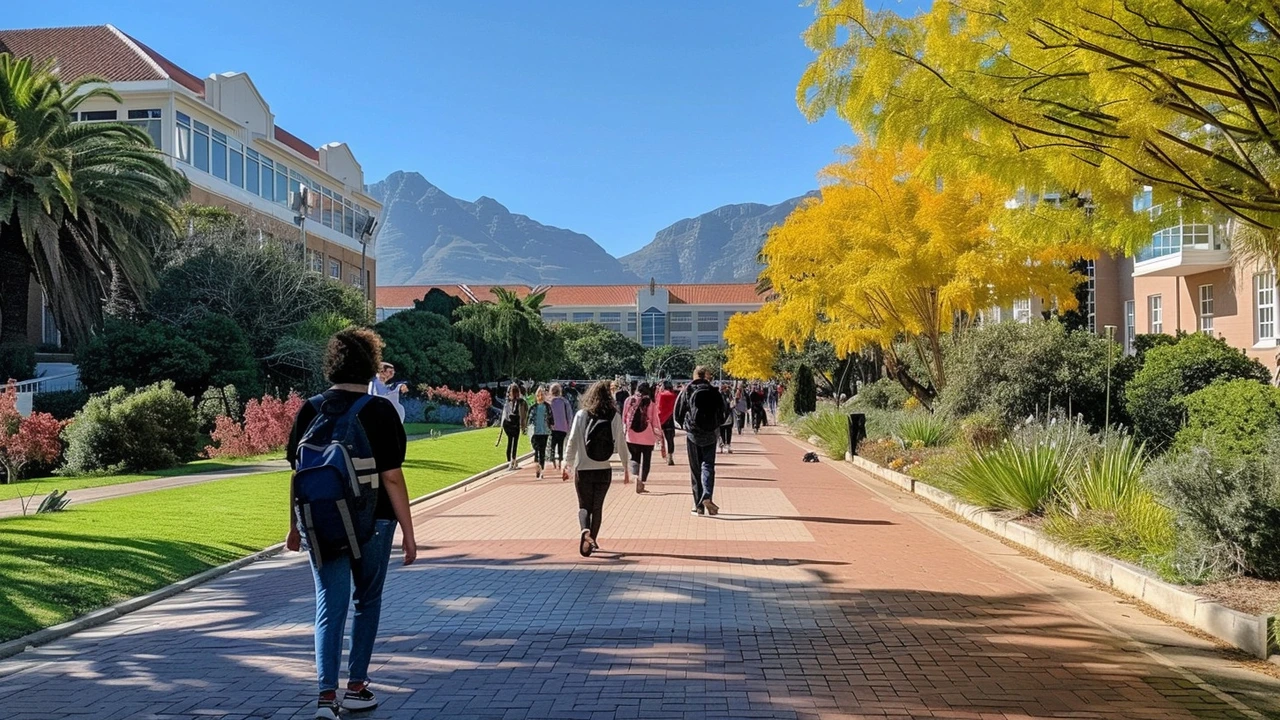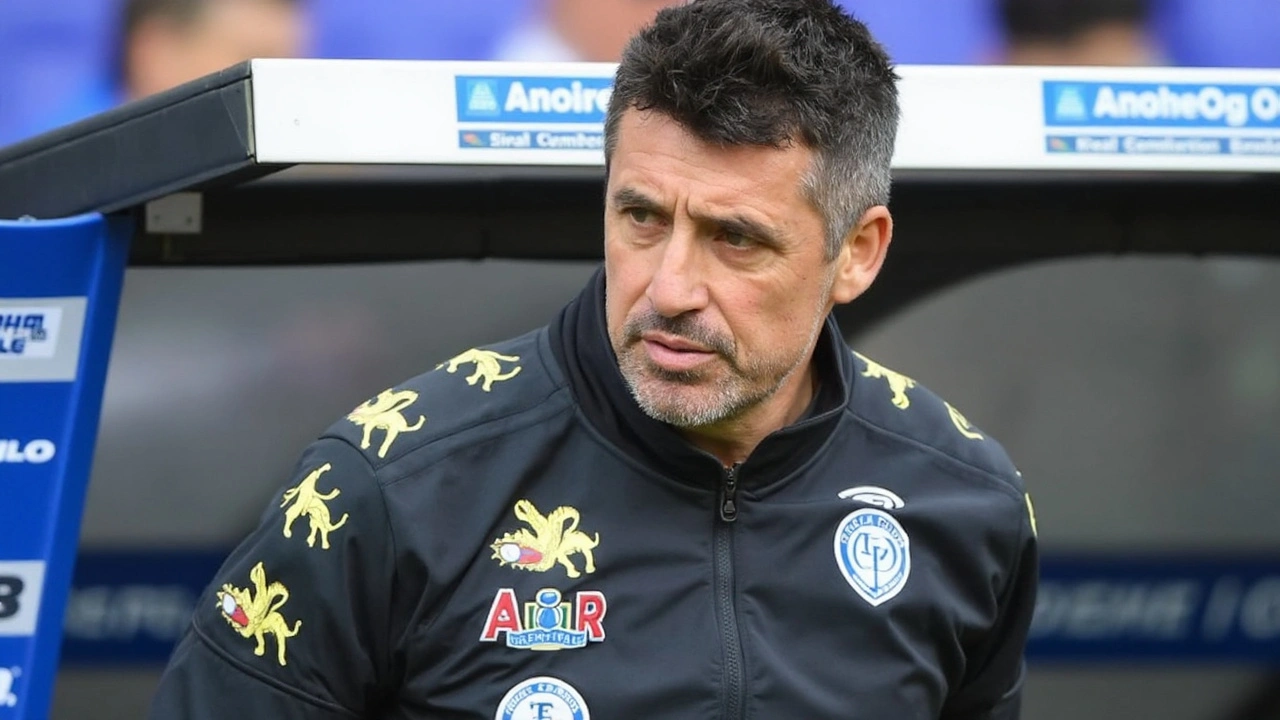Stellenbosch University to Permanently Close Wilgenhof Residence Amid Controversy
Stellenbosch University has made the momentous decision to close its Wilgenhof Residence, a move that will mark the end of an era for the institution. This decision, set to take effect at the end of the 2024 academic year, comes after the discovery of deeply disturbing materials in two of the residence's rooms. These findings prompted the university to launch a comprehensive investigation, spearheaded by a specialized panel comprising seasoned professionals, including an experienced advocate, a former university executive, and the Deputy Registrar of Governance, Ethics, and Compliance.
The panel's diligent and thorough investigation delved into the circumstances surrounding the unsettling discoveries, gathering information from various sources and scrutinizing the practices within the residence. The findings and subsequent recommendations of the panel were compelling enough to prompt the university's rectorate to take decisive action. Professor Wim de Villiers, the esteemed rector of Stellenbosch University, emphasized the need to uphold the institution's core values of inclusivity and dignity for all members of the university community.
Prof. de Villiers was unequivocal in his statements following the rectorate's decision, underscoring the university's commitment to creating a welcoming and safe environment for all students and staff. His remarks reflected a broader mission of ridding the campus of any practices that could hamper a healthy and supportive educational environment. He asserted that any conduct violating these fundamental principles would not be tolerated, and robust measures would be implemented to ensure that all campus facilities meet the highest standards of respect and integrity.
The Investigation and Its Findings
The catalyst for this drastic measure was the discoveries made within Wilgenhof Residence. Although specifics about the disturbing content found have not been publicly disclosed, their nature was severe enough to warrant immediate action. The panel's investigation unearthed details that painted a troubling picture, leading to a decisive call for the closure of the residence. This proactive step was deemed necessary to prevent any recurrence of such incidents and to reinforce the university's zero-tolerance policy towards behaviors and materials that undermine its ethical standards.
Throughout the investigative process, the panel maintained an unwavering focus on transparency and thoroughness. The inquiry involved evaluating the current operational protocols of the residence, interviewing residents and staff, and examining how such content could have been in the rooms undetected. The conclusion made it clear that significant changes were imperative to safeguard the university's values and community well-being.
A Strategic Move for the Future
The impending closure of Wilgenhof Residence has sparked conversations about the future use of the space. While the residence will no longer function in its current capacity, the university is already planning alternative uses for this prime piece of real estate. These plans are scheduled for discussion and implementation starting in 2025, after the official closure at the end of the 2024 academic year.
An essential aspect of this transformation involves actively engaging current and prospective students, faculty, and other stakeholders in the planning process. By doing so, the university aims to repurpose the space in a way that aligns with its mission and values, potentially turning it into a facility that can serve broader community purposes or contribute to innovative educational programs. The possibilities are diverse, ranging from academic centers to inclusive student hubs, all of which will be explored in the coming months.
Key Figures and Their Roles
Leading this course of action is a group of distinguished university officials and external advisors whose expertise has been crucial in navigating these challenging times. The panel in charge of the investigation brought together individuals with extensive experience in governance, ethics, and compliance. Their balanced and comprehensive approach ensured that all aspects of the situation were considered, and that the proposed solutions were both practical and principled.
Among the pivotal figures is the Deputy Registrar of Governance, Ethics, and Compliance, who played a central role in both the investigative process and in formulating the subsequent recommendations. The advocate and former university executive provided additional layers of oversight and professional judgment, ensuring that the investigation maintained its integrity and thoroughness. Collectively, their contributions have set a standard for institutional response and accountability.
A Commitment to Continuous Improvement
Stellenbosch University's proactive steps in this matter reflect a commitment to continuous improvement and upholding excellence in higher education. The decision to close Wilgenhof Residence, albeit difficult, exemplifies the university's readiness to take necessary actions to protect its community and honor its principles. It also serves as a strong message to other institutions about the importance of vigilance and responsiveness in maintaining a safe and inclusive academic environment.
By prioritizing the welfare and dignity of all students and staff, Stellenbosch University aims to foster a culture of mutual respect and integrity, providing a sound foundation for learning and personal growth. The closure of Wilgenhof Residence is not merely an endpoint but a pivotal shift towards a more accountable and progressive future.
Awaiting Final Approval
Although the rectorate has accepted the recommendations for closure, the final decision rests with the university's council. This body is tasked with reviewing the panel's findings, the proposed course of action, and the overall implications for the university. Their endorsement is anticipated, given the weight of the evidence and the clear alignment with the university's commitment to ethical conduct and student welfare.
In anticipation of the council’s decision, preparations are underway to facilitate a smooth transition. Alternative housing arrangements for current residents of Wilgenhof will be a priority, ensuring that their academic pursuits are not disrupted. Moreover, planning for the new use of the space is being fast-tracked, with suggestions and feedback being actively solicited from the university community.
Conclusion
The impending closure of Wilgenhof Residence at Stellenbosch University is a notable development aimed at enhancing the institution's standards and fostering a more inclusive and respectful environment. Driven by the discoveries of unsettling content and the insights of an expert panel, this decision underscores the university's unwavering commitment to its ethical principles. As Professor Wim de Villiers and his team take these decisive steps, the broader vision for Stellenbosch University remains focused on continual improvement, safeguarding the dignity of its community, and ensuring that every aspect of university life reflects its core values. With strategic planning and community engagement, the transition away from Wilgenhof Residence will pave the way for innovative and inclusive developments that resonate with the university’s mission and aspirations.





